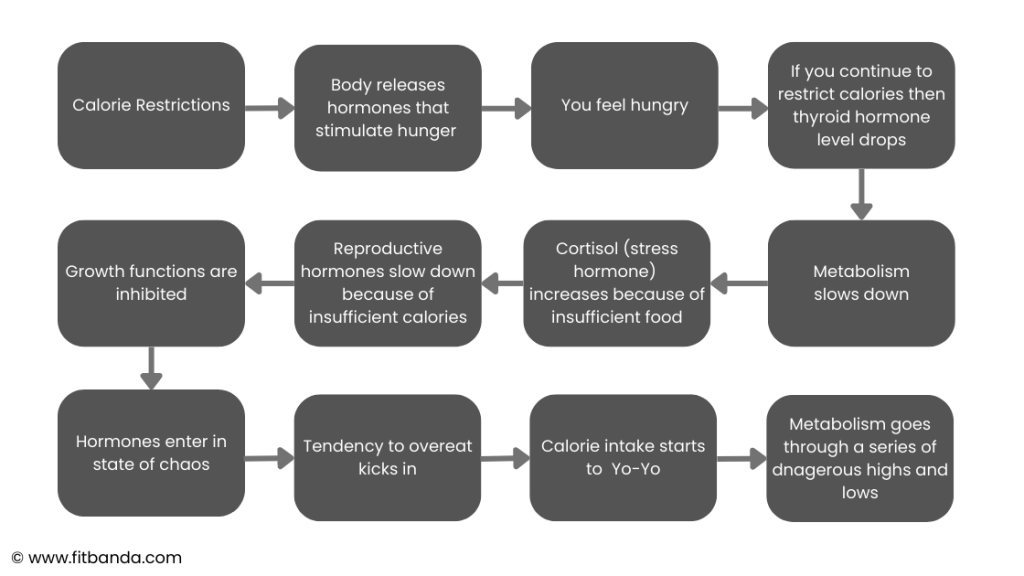The first part of this multi-part series touched upon the reasons behind the excess fat gain. Let’s see why traditional restrictive diets and exercises do not give sustainable results
What happens when an obese person tries to lose that excess body fat using a restrictive diet & exercise? It is no secret that when we diet or exercise or skip meals to lose weight, we end up hungry.
After a few days, we give in and overeat, unbeknownst to physical and biochemical processes occurring inside our bodies.

Metabolism (/məˈtæbəlɪzəm/, from Greek: μεταβολή metabolē, “change”) is the set of life-sustaining chemical reactions in organisms. The three main purposes of metabolism are: the conversion of the energy in food to energy available to run cellular processes; the conversion of food to building blocks for proteins, lipids, nucleic acids, and some carbohydrates; and the elimination of metabolic wastes.
Wikipedia
This leads to cravings, mood imbalances, loss of muscle, damage to metabolism, and weight gain. These are the EXACT things you did not want in the first place!
In the next post, I will explain how hormonal imbalances play a role in obesity.
Read Part III here




Pingback: Obesity is a symptom, not the cause. Part – 3: Hormonal Imbalance – FitBanda™ Blog
Superb blog. Quite informative.
Thank you so much Alok. Please keep visiting.